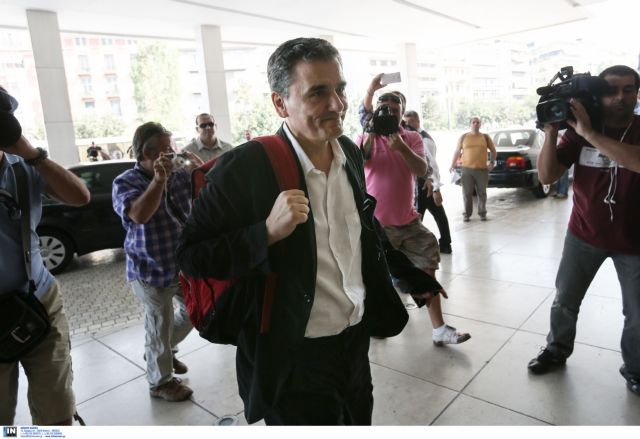In Friday’s meeting that was held in Athens Hilton between Greek Finance and Economy Ministers Euclid Tsakalotos and Giorgos Stathakis and the representatives of the European Commission, European Central Bank, European Stability Mechanism and International Monetary Fund, a package of prior actions was discussed.
Reports indicate that the Greek government and creditors are working on the actions that need to be passed through Parliament in Athens by the 18th of August, so that the first loan payment worth 10-12 billion euros may be paid out in time in order to cover the maturity of Greek bonds held by the ECB on the 20th of August. The loan is expected to be over 83 billion euros, however unless the capital needs of the Greek banks are properly assessed, then it is not yet clear how much it will ultimately be.
Aside from reversing a number of laws an initiatives that the Greek government took during the first six months of 2015, the creditors demand a series of controversial measures, such as the abolition of tax cuts for farmers, increasing the taxation of ship-owners and restricting early pensions. Accepting these measures is a prerequisite for the creditors to begin making payments to Greece.
Among the changes proposed are:
- Changinh the legislation on recruitments in public sector, the ‘100 installment’ debt settlement and state subsidies towards the Sugar Industry
- Abolishing the 8% solidarity tax on incomes greater that 500,000 euros and taking measures to offset the judicial decisions regarding pension increases and lump sum payouts
- Changing legislation to ensure that the appointment of hospital directors is independent and unbiased
- Ensuring that former civil servants accused and found guilty of bribery do not return to the public sector, as in the case of ESY doctors.
- Raising the early retirement age limits to 67 years or 62 years with 40 years of insurance, as of 2022
- Slashing the heating oil benefit by 50% in the 2016 budget
- Abolishing tax cuts for farmers, first by cutting their diesel subsidy by 50% and then by gradually abolishing the 12,000 euro tax-free threshold
- Raising the taxation of ship-owners
- Taking measures to ensure that payments for the ENFIA real estate tax is collected
- Reducing the price of non-patent drugs and reexamine the prescription caps on generic drugs
- Reducing military expenditure by at least 200 million euros for 2016, with cuts in staff expenses, as well procurement and armament programs
- Examining all benefits, especially travel and leave expenses
- Reorganizing urban transport in Athens (OASA)
- Introducing stricter penalties for debts towards the State and pension funds (especially those with debts in excess of 100,000 euros)
- Opening closed professions and deregulate the market, based on the OECD toolkit and recommendations
- Completing the sale of 51% shares of OLP and OLTH, as well as TRENOSE. Concluding negotiations for the concession of ten large airports to Fraport.




